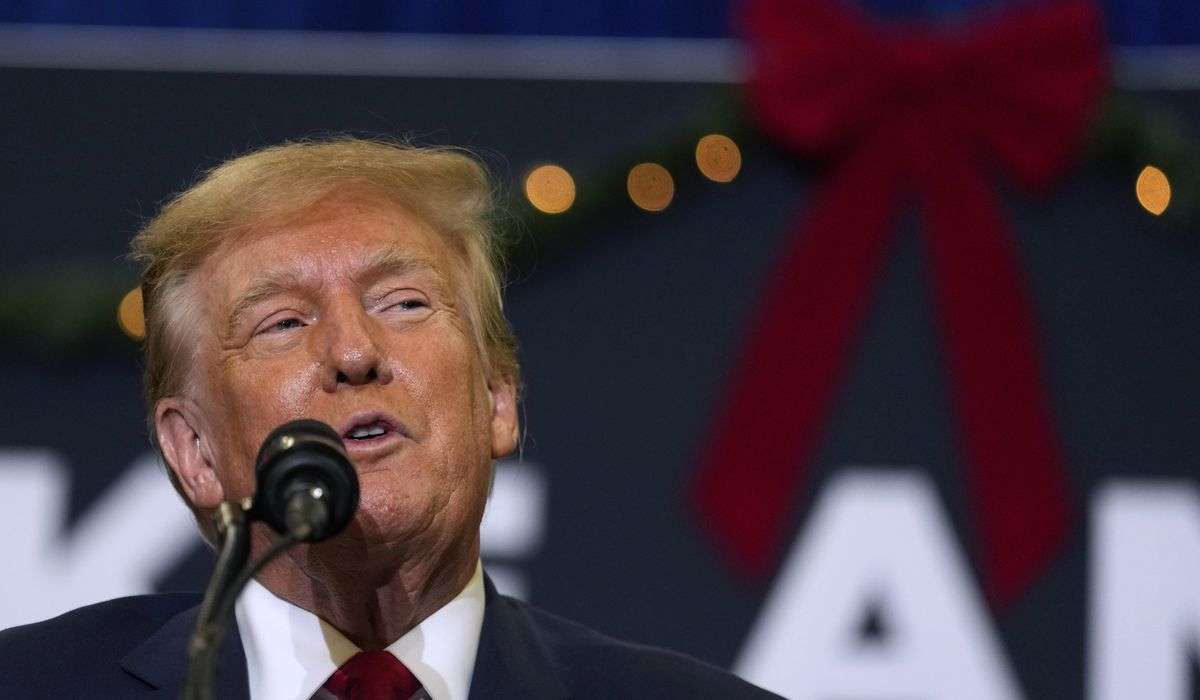Decision on Trump’s immunity claims could be months away, former prosecutor warns

The Supreme Court’s refusal to fast-track a hearing on Donald Trump’s immunity claims has set up a legal battle that could drag on for months, a prominent former federal prosecutor warned Sunday.
On Friday, the justices denied special counsel Jack Smith’s bid for a hearing on the former president’s claim that he cannot be prosecuted for official acts, putting the matter in the hands of the D.C. Circuit Court of Appeals, which is scheduled to hear arguments on Jan. 9.
Preet Bharara, former U.S. attorney for the Southern District of New York, said Sunday that while the appeals process could be decided in the coming weeks, that “weeks can turn to months pretty quickly” in the legal process.
“Obviously, the special counsel argued stridently for fast-tracking the case and getting it done quickly because there’s an election coming up, although he doesn’t say that outright,” Mr. Bharara said Sunday on ABC’s “This Week.”
“It’s still possible the D.C. Circuit Court of Appeals deals with the matter quickly in the next few weeks, and it’s also possible that the Supreme Court then has an understanding that it will immediately take jurisdiction and decide the case, but it may not,” said the former Manhattan prosecutor.
Either way, the expedited decision Mr. Smith had hoped for, allowing the case to be decided before the November presidential election, looks less likely.
SEE ALSO: Supreme Court rejects special counsel’s request to decide Trump’s immunity claim
At issue is Mr. Trump’s claim that presidential immunity shields him from prosecution for his actions while president.
Mr. Trump made the claim against charges of conspiracy to defraud the United States, conspiracy to obstruct an official proceeding, obstruction of an official proceeding, and conspiracy against the right to vote.
The charges stem from his efforts to overturn the 2020 election results and the pro-Trump mob’s attack on the Capitol on Jan. 6.
Mr. Smith told the justices that the only way to assure the high court determines if Mr. Trump is protected from federal prosecution through presidential immunity this term is to hear the case ahead of the appeals court in Washington.
The appeals court signaled it would expedite a decision. Traditionally, the parties would wait for a ruling from the appeals court before making filings back to the justices for an appeal. That process could take months.
The justices stop hearing cases in April for its current term and wrap up rulings by the end of June. Mr. Smith was trying to keep his March 4 trial against Mr. Trump on election fraud charges on track.
SEE ALSO: Lindsey Graham says Trump getting kicked off ballot in Colorado is ‘political decision’
If the justices do not take up the case this term, it could kick the issue to October, when they return from summer recess, potentially delaying the trial until after the November election.
The high court has never weighed the issue of presidential immunity for criminal charges.
Mr. Trump’s attorneys had told the high court earlier this week not to rush its decision on the matter.
They said an unprecedented case such as this — weighing if a president can face criminal charges for official acts — shouldn’t be decided at “breakneck speed” due to “partisan motivation.”
Mr. Trump’s filing on Wednesday was in response to Mr. Smith last week asking the justices to fast-track a decision on the presidential immunity issues, skipping a decision by a federal appeals court.
In an 81-page filing, Mr. Smith said the issue is critical to democracy and the high court must settle the question of whether Mr. Trump is immune from federal prosecution for crimes he allegedly committed while president.
He went around the D.C. Circuit Court hoping the justices would answer the question before the appeals panel took it up. It would have taken four justices to vote in favor of hearing the dispute.
A federal judge in Washington ruled against Mr. Trump’s claim of presidential immunity. The case, though, has been put on hold until the issue of presidential immunity is settled.
Any delay could benefit Mr. Trump politically, as he doesn’t want to be on trial at the height of his presidential campaign ahead of the November 2024 election.
Traditionally, a Supreme Court case takes months to resolve.
The justices have decided fundamental separation-of-powers and election cases quickly in the past though, acting on United States v. Nixon within two months in 1974 and taking just three days to decide Bush v. Gore in 2000.






